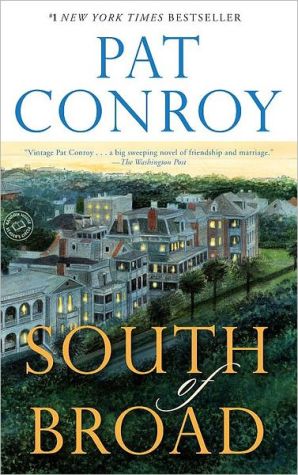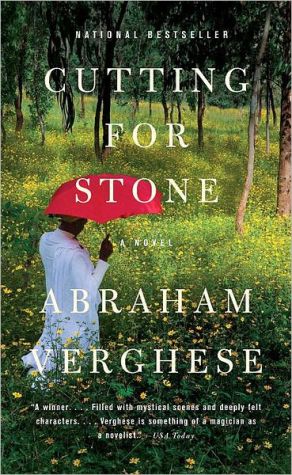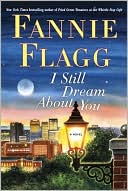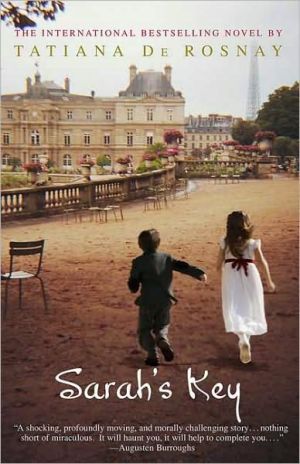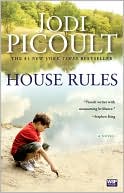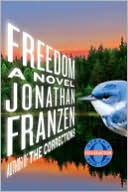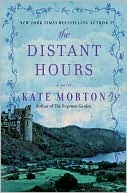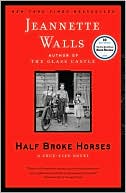South of Broad
Leopold Bloom King has been raised in a family shattered—and shadowed—by tragedy. Lonely and adrift, he searches for something to sustain him and finds it among a tightly knit group of high school outsiders. Surviving marriages happy and troubled, unrequited loves and unspoken longings, hard-won successes and devastating breakdowns, as well as Charleston, South Carolina’s dark legacy of racism and class divisions, these friends will endure until a final test forces them to face something none...
Search in google:
Leopold Bloom King has been raised in a family shattered—and shadowed—by tragedy. Lonely and adrift, he searches for something to sustain him and finds it among a tightly knit group of high school outsiders. Surviving marriages happy and troubled, unrequited loves and unspoken longings, hard-won successes and devastating breakdowns, as well as Charleston, South Carolina’s dark legacy of racism and class divisions, these friends will endure until a final test forces them to face something none of them are prepared for.Spanning two turbulent decades, South of Broad is Pat Conroy at his finest: a masterpiece from a great American writer whose passion for life and language knows no bounds.The Barnes & Noble ReviewIt's been 14 years between novels for Pat Conroy, a son of the South whose love of his native landscape is matched only by his obsession with the grim strength of family ties. Much of that darkness rises from experiences in his own life. He mined his explosive relationship with his father, a severe and controlling ex-Marine, for his debut novel, The Great Santini. He followed up with The Lords of Discipline, which scandalized his alma mater, The Citadel, with its unflattering portrayal. With The Prince of Tides, a bestselling novel turned A-list movie with Barbra Streisand, he cemented his spot in popular culture. Conroy's back on familiar turf with South of Broad, which, depending on the eye of the beholder, is either a sprawling saga brimful of characters and emotion and sense of place, or a period melodrama with a pretty travelogue thrown in.
Prologue\ The Mansion on the River\ It was my father who called the city the Mansion on the River.\ He was talking about Charleston, South Carolina, and he was a native son, peacock proud of a town so pretty it makes your eyes ache with pleasure just to walk down its spellbinding, narrow streets. Charleston was my father's ministry, his hobbyhorse, his quiet obsession, and the great love of his life. His bloodstream lit up my own with a passion for the city that I've never lost nor ever will. I'm Charleston-born, and bred. The city's two rivers, the Ashley and the Cooper, have flooded and shaped all the days of my life on this storied peninsula.\ I carry the delicate porcelain beauty of Charleston like the hinged shell of some soft-tissued mollusk. My soul is peninsula-shaped and sun-hardened and river-swollen. The high tides of the city flood my consciousness each day, subject to the whims and harmonies of full moons rising out of the Atlantic. I grow calm when I see the ranks of palmetto trees pulling guard duty on the banks of Colonial Lake or hear the bells of St. Michael's calling cadence in the cicada-filled trees along Meeting Street. Deep in my bones, I knew early that I was one of those incorrigible creatures known as Charlestonians. It comes to me as a surprising form of knowledge that my time in the city is more vocation than gift; it is my destiny, not my choice. I consider it a high privilege to be a native of one of the loveliest American cities, not a high-kicking, glossy, or lipsticked city, not a city with bells on its fingers or brightly painted toenails, but a ruffled, low-slung city, understated and tolerant of nothing mismade or ostentatious. Though Charleston feels a seersuckered, tuxedoed view of itself, it approves of restraint far more than vainglory.\ As a boy, in my own backyard I could catch a basket of blue crabs, a string of flounder, a dozen redfish, or a net full of white shrimp. All this I could do in a city enchanting enough to charm cobras out of baskets, one so corniced and filigreed and elaborate that it leaves strangers awed and natives self-satisfied. In its shadows you can find metalwork as delicate as lace and spiral staircases as elaborate as yachts. In the secrecy of its gardens you can discover jasmine and camellias and hundreds of other plants that look embroidered and stolen from the Garden of Eden for the sheer love of richness and the joy of stealing from the gods. In its kitchens, the stoves are lit up in happiness as the lamb is marinating in red wine sauce, vinaigrette is prepared for the salad, crabmeat is anointed with sherry, custards are baked in the oven, and buttermilk biscuits cool on the counter.\ Because of its devotional, graceful attraction to food and gardens and architecture, Charleston stands for all the principles that make living well both a civic virtue and a standard. It is a rapturous, defining place to grow up. Everything I reveal to you now will be Charleston-shaped and Charleston-governed, and sometimes even Charleston-ruined. But it is my fault and not the city's that it came close to destroying me. Not everyone responds to beauty in the same way. Though Charleston can do much, it can't always improve on the strangeness of human behavior. But Charleston has a high tolerance for eccentricity and bemusement. There is a tastefulness in its gentility that comes from the knowledge that Charleston is a permanent dimple in the understated skyline, while the rest of us are only visitors.\ My father was an immensely gifted science teacher who could make the beach at Sullivan's Island seem like a laboratory created for his own pleasures and devices. He could pick up a starfish, or describe the last excruciating moments of an oyster's life on a flat a hundred yards from where we stood. He made Christmas ornaments out of the braceletlike egg casings of whelks. In my mother's gardens he would show me where the ladybug disguised her eggs beneath the leaves of basil and arugula. In the Congaree Swamp, he discovered a new species of salamander that was named in his honor. There was no butterfly that drifted into our life he could not identify by sight. At night, he would take my brother, Steve, and I out into the boat to the middle of Charleston Harbor and make us memorize the constellations. He treated the stars as though they were love songs written to him by God. With such reverence he would point out Canis Major, the hound of Orion, the Hunter; or Cygnus, the Swan; or Andromeda, the Chained Lady; or Cassiopeia, the Lady in the Chair. My father turned the heavens into a fresh puzzlement of stars: “Ah, look at Jupiter tonight. And red Mars. And isn't Venus fresh on her throne?” A stargazer of the first order, he squealed with pleasure on the moonless nights when the stars winked at him in some mysterious, soul- stirring graffiti of ballet-footed light. He would clap his hands with irresistible joy on a cloudless night when he made every star in the sky a silver dollar in his pocket.\ He was more North Star than father. His curiosity about the earth ennobled his every waking moment. His earth was billion-footed, with unseen worlds in every drop of water and every seedling and every blade of grass. The earth was so generous. It was this same earth that he prayed to because it was his synonym for God.\ My mother is also a Charlestonian, but her personality strikes far darker harmonies than my father's did. She is God-haunted and pious in a city with enough church spires to have earned the name of the Holy City. She is a scholar of prodigious gifts, who once wrote a critique of Richard Ellman's biography of James Joyce for the New York Review of Books. For most of my life she was a high school principal, and her house felt something like the hallway of a well-run school. Among her students, she could run a fine line between fear and respect. There was not much horseplay or lollygagging about in one of Dr. Lindsay King's schools. I knew kids who were afraid of me just because she was my mother. She almost never wears makeup other than lipstick. Besides her wedding band, the only jewelry she owns is the string of pearls my father bought her for their honeymoon.\ Singularly, without artifice or guile, my mother's world seemed disconsolate and tragic before she really knew how tragic life could be. Once she learned that no life could avoid the consequences of tragedy, she soft¬ened into an ascetic's acknowledgment of the illusory nature of life. She became a true believer in the rude awakening.\ My older brother, Steve, was her favorite by far, but that seemed only natural to everyone, including me. Steve was blond and athletic and charismatic, and had a natural way about him that appealed to the higher instincts of adults. He could make my mother howl with laughter by telling her a story of one of his teachers or about something he had read in a book; I could not have made my mother smile if I had exchanged arm farts with the Pope in the Sistine Chapel. Because I hero-worshipped Steve, it never occurred to me to be jealous of him. He was both solicitous and protective of me; my natural shyness brought out an instinctive championing of me. The world of children terrified me, and I found it perilous as soon as I was exposed to it. Steve cleared a path for me until he died.\ Now, looking back, I think the family suffered a collective nervous breakdown after we buried Steve. His sudden, inexplicable death sent me reeling into a downward spiral that would take me many years to fi ght my way out of and then back into the light. My bashfulness turned to morbidity. My alarm systems all froze up inside me. I went directly from a fearful childhood to a hopeless one without skipping a beat. It was not just the wordless awfulness of losing a brother that unmoored me but the realization that I had never bothered to make any other friends, rather had satisfied myself by being absorbed into that wisecracking circle of girls and boys who found my brother so delicious that his tagalong brother was at least acceptable. After Steve's death, that circle abandoned me before the flowers at his graveside had withered. Like Steve, they were bright and flashy children, and I always felt something like a toadstool placed outside the watch fires of their mysteries and attractions.\ So I began the Great Drift when Steve left my family forever. I found myself thoroughly unable to fulfill my enhanced duties as an only child. I could not take a step without incurring my mother's helpless wrath over my raw un-Stephenness, her contempt for my not being blond and acrobatic and a Charleston boy to watch. It never occurred to me that my mother could hold against me my unfitness to transfer myself into the child she had relished and lost. For years, I sank into the unclear depths of myself, and learned with some surprise that their haunted explorations would both thrill and alarm me for the rest of my life. A measurable touch of madness was enough to send my fragile boyhood down the river, and it took some hard labor to get things right again. I could always feel a flinty, unconquerable spirit staring out of the mangroves and the impenetrable rain forests inside me, a spirit who waited with a mineral patience for that day I was to claim myself back because of my own fi erce need of survival. In the worst of times, there was something that lived in isolation and commitment that would come at my bidding and stand beside me, shoulder-to-shoulder, when I decided to face the world on my own terms.\ I turned out to be a late bloomer, which I long regretted. My parents suffered needlessly because it took me so long to find my way to a place at their table. But I sighted the early signs of my recovery long before they did. My mother had given up on me at such an early age that a comeback was something she no longer even prayed for in her wildest dreams. Yet in my anonymous and underachieving high school career, I laid the foundation for a strong finish without my mother noticing that I was, at last, up to some good. I had built an impregnable castle of solitude for myself and then set out to bring that castle down, no matter how serious the collateral damage or who might get hurt.\ I was eighteen years old and did not have a friend my own age. There wasn't a boy in Charleston who would think about inviting me to a party or to come out to spend the weekend at his family's beach house.\ I planned for all that to change. I had decided to become the most interesting boy to ever grow up in Charleston, and I revealed this secret to my parents.\ Outside my house in the languid summer air of my eighteenth year, I climbed the magnolia tree nearest to the Ashley River with the agility that constant practice had granted me. From its highest branches, I surveyed my city as it lay simmering in the hot-blooded saps of June while the sun began to set, reddening the vest of cirrus clouds that had gathered along the western horizon. In the other direction, I saw the city of rooftops and columns and gables that was my native land. What I had just promised my parents, I wanted very much for them and for myself. Yet I also wanted it for Charleston. I desired to turn myself into a worthy townsman of such a many-storied city.\ Charleston has its own heartbeat and fingerprint, its own mug shots and photo ops and police lineups. It is a city of contrivance, of blueprints; devotion to pattern that is like a bent knee to the nature of beauty itself. I could feel my destiny forming in the leaves high above the city. Like Charleston, I had my alleyways that were dead ends and led to nowhere, but mansions were forming like jewels in my bloodstream. Looking down, I studied the layout of my city, the one that had taught me all the lures of attractiveness, yet made me suspicious of the showy or the makeshift. I turned to the stars and was about to make a bad throw of the dice and try to predict the future, but stopped myself in time.\ A boy stopped in time, in a city of amber-colored life that possessed the glamour forbidden to a lesser angel.\ From the Hardcover edition.
\ Chris BohjalianSouth of Broad is a big sweeping novel of friendship and marriage—and, perhaps, vintage Pat Conroy…Conroy is an immensely gifted stylist, and there are passages in the novel that are lush and beautiful and precise. No one can describe a tide or a sunset with his lyricism and exactitude. My sense is that the millions of readers who cherish Conroy's work won't be at all disappointed—and nor will anyone who owns stock in Kleenex.\ —The Washington Post\ \ \ \ \ Publishers WeeklyCharleston, S.C., gossip columnist Leopold Bloom King narrates a paean to his hometown and friends in Conroy's first novel in 14 years. In the late '60s and after his brother commits suicide, then 18-year-old Leo befriends a cross-section of the city's inhabitants: scions of Charleston aristocracy; Appalachian orphans; a black football coach's son; and an astonishingly beautiful pair of twins, Sheba and Trevor Poe, who are evading their psychotic father. The story alternates between 1969, the glorious year Leo's coterie stormed Charleston's social, sexual and racial barricades, and 1989, when Sheba, now a movie star, enlists them to find her missing gay brother in AIDS-ravaged San Francisco. Too often the not-so-witty repartee and the narrator's awed voice (he is very fond of superlatives) overwhelm the stories surrounding the group's love affairs and their struggles to protect one another from dangerous pasts. Some characters are tragically lost to the riptides of love and obsession, while others emerge from the frothy waters of sentimentality and nostalgia as exhausted as most readers are likely to be. Fans of Conroy's florid prose and earnest melodramas are in for a treat. (Aug.)\ Copyright © Reed Business Information, a division of Reed Elsevier Inc. All rights reserved.\ \ \ Library Journal"Kids, I'm teaching you to tell a story. It's the most important lesson you'll ever learn," says the protagonist of Conroy's first novel in 14 years (since 1995's Beach Music). Switching between the 1960s and the 1980s, the narrative follows a group of friends whose relationship began in Charleston, SC. The narrator is Leopold Bloom King (his mother was a Joyce scholar), a likable but troubled kid who goes from having one best friend, his brother, to having no friends after a tragedy, to having, suddenly, a gang, of which he is perhaps not the leader but certainly the glue. Conroy continues to demonstrate his skill at presenting the beauty and the ugliness of the South, holding both up for inspection and, at times, admiration. He has not lost his touch for writing stories that are impossible to put down; the fast pace and shifting settings grip the reader even as the story occasionally veers toward the unbelievable. VERDICT Filled with the lyrical, funny, poignant language that is Conroy's birthright, this is a work Conroy fans will love. Libraries should buy multiple copies.—Amy Watts, Univ. of Georgia Lib., Athens\ \ \ \ \ Kirkus ReviewsFirst novel in 14 years from the gifted spinner of Southern tales (Beach Music, 1995, etc.)-a tail-wagging shaggy dog at turns mock-epic and gothic, beautifully written throughout. The title refers, meaningfully, to a section of Charleston, S.C., and, as with so many Southern tales, one great story begets another and another. This one starts most promisingly: "Nothing happens by accident." Indeed. The Greeks knew that, and so does young Leopold Bloom King. It is on Bloomsday (June 16) 1969 that 18-year-old Leo learns his mother had once been a nun. Along the way, new neighbors appear, drugs make their way into the idyllic landscape and two new orphans turn up "behind the cathedral on Broad Street." The combination of all these disparate elements bears the unmistakable makings of a spirit-shaping saga. The year 1969 is a heady one, of course, with the Summer of Love still fresh in memory, but Altamont on the way and Vietnam all around. Working a paper route along the banks of the Ashley River and discovering the poetry of place ("a freshwater river let mankind drink and be refreshed, but a saltwater river let it return to first things"), Leo gets himself in a heap of trouble, commemorated years later by the tsk-tsking of the locals. But he also finds out something about how things work ("Went out with a lot of women when I was young," says one Nestor; "I could take the assholes, but the heartbreakers could afflict some real damage.") and who makes them work right-or not. Leo's classic coming-of-age tale sports, in the bargain, a king-hell hurricane. Conroy is a natural at weaving great skeins of narrative, and this one will prove a great pleasure to his many fans.\ \ \ \ \ From the PublisherPraise for South of Broad\ "Conroy is an immensely gifted stylist…. No one can describe a tide or a sunset with his lyricism and exactitude."—Chris Bohjalian, The Washington Post\ \ "Conroy writes with a momentum that's impossible to resist."—People, 3 of 4 stars.\ "Beautifully written throughout…. Conroy is a natural at weaving great skeins of narrative, and this one will prove a great pleasure to his many fans."—Kirkus Reviews (starred review)\ "Conroy is a master of American fiction and he has proved it once again in this magnificent love letter to his beloved Charleston, and to friendships that will stand the test of time."—Bookpage\ Praise for Beach Music\ "Astonishing . . . stunning . . . the range of passions and subjects that brings life to every page is almost endless." —Washington Post Book World\ \ "Blockbuster writing at its best." —Los Angeles Times Book Review\ \ "Pat Conroy's writing contains a virtue now rare in most contemporary fiction: passion." —Denver Post\ \ "Reading Pat Conroy is like watching Michelangelo paint the Sistine Chapel." —Houston Chronicle\ \ "Incandescent." —Atlanta Journal-Constitution\ "Grand." —Boston Globe\ "Lyrical . . . evocative . . . Beach Music is one from the heart, and it beats with a vibrancy that cannot be denied." —Hartford Courant\ "Breathtaking . . . perhaps the most eagerly awaited book of the year . . . a knockout." —Charlotte Observer\ "Beach Music attains an almost ethereal beauty." —Miami Herald\ "Few novelists write as well, and none as beautifully . . . Conroy's narrative is so fluid and poetic that it's apt to seduce you into reading just one more page, just one more chapter." —Lexington Herald-Leader\ "Compelling storytelling . . . a page-turner . . . Conroy takes aim at our darkest emotions, lets the arrow fly, and hits a bull's-eye almost every time." —Milwaukee Journal Sentinel\ From the Hardcover edition.\ \ \ \ \ \ The Barnes & Noble ReviewIt's been 14 years between novels for Pat Conroy, a son of the South whose love of his native landscape is matched only by his obsession with the grim strength of family ties. Much of that darkness rises from experiences in his own life. He mined his explosive relationship with his father, a severe and controlling ex-Marine, for his debut novel, The Great Santini. He followed up with The Lords of Discipline, which scandalized his alma mater, The Citadel, with its unflattering portrayal. With The Prince of Tides, a bestselling novel turned A-list movie with Barbra Streisand, he cemented his spot in popular culture. \ Conroy's back on familiar turf with South of Broad, which, depending on the eye of the beholder, is either a sprawling saga brimful of characters and emotion and sense of place, or a period melodrama with a pretty travelogue thrown in.\ Litmus test:\ "I carry the delicate porcelain beauty of Charleston like a hinged shell of some soft-tissued mollusk. My soul is peninsula-shaped and sun-hardened and river-swollen. The high tides of the city flood my consciousness every day, subject to the whims and harmonies of full moons rising out of the Atlantic."\ That's Leopold Bloom King, the narrator of South of Broad, named for the hero of James Joyce's Ulysses. Leo's a sweet, messed-up kid who, at 18 years old, already has a felony drug bust and a stint in a mental ward on his résumé. We meet him on June 16th, known to Joyceans as Bloomsday, the 24-hour span during which the author's famously impregnable novel takes place. The year is 1969, a tipping point for the civil rights movement and the coming countercultural revolution. Both will rock Leo's staid and stately hometown of Charleston.\ Leo's troubles began a decade before, the day he discovered the dead body of his charismatic ten-year old brother, Steve, a bloody suicide. The shock all but destroyed the King family. Leo's mother, a high school principal and a perfectionist, retreated into a frosty reserve. His father, a science teacher, struggled to fill the resulting gap. Leo himself went into a prolonged freefall. As we meet him on this Bloomsday, the lonely boy with the outlandish name is about to break free of the string of shrinks and probation officers who have marked his adolescence.\ "Because I was a timid boy, I grew fearful and knew deep in my heart the world was out to get me," Leo tells us in the first chapter. "Before the summer of my senior year, the real life I was always meant to lead lay coiled and ready to spring in the hot Charleston days that followed."\ That real life is set in motion as Leo reaches out, all in a single day, to an oddball collection of kids. There's Niles and Starla, a pair of runaways who, when Leo meets them, are dressed in bright orange jumpsuits and handcuffed to their chairs at St. Jude's Orphanage. Next, Leo bakes cookies to welcome the mysterious and seductive twins Trevor and Sheba Poe, who move in across the street. And at lunch at the country club Leo is recruited to help Chad, Fraser, and (Joyce alert!) Molly, society kids caught using drugs, learn the ropes at their new school. Add in a phone call from a nun, which reveals to Leo a stunning secret about his parents' marriage, and it's been almost as eventful a day as Leopold and Stephen's.\ All this makes for fast start and a dense read. Just three weeks later, as we're still sorting out who's who and what's what, Conroy shunts the whole gang 20 years into the future. It's 1989, and Leo's now a gossip columnist for Charleston's local newspaper. The ragtag group he assembled has become the core social force in his life. Bonds have formed. Marriages have taken place. Children have been born. When Trevor, one of the glamorous Poe twins, goes missing in his adopted city of San Francisco, the whole gang heads off to California to save him.\ The scope of the story blows wide open, and Conroy dives into the themes and characters that, from book to book to book, have a hold -- or stranglehold -- on him. There's physical, emotional, and sexual abuse, racism and class warfare, stalking and rape and murder, and, in the revelations about Steve's suicide, some very dark and rather familiar ground.\ There's also, amid a hefty bit of overwriting, some truly lovely stuff. Here Leo, the southern boy, nails California in two short sentences:\ "The West is both a great thirst and a dry, weatherless curiosity. In California, the mad, deep breath of deserts is never far away."\ It's Conroy's trademark prose, cinematic and sensitive. It makes you wish he'd stop swinging for the fences all the time, stop loading every last clause of nearly every sentence with so much stuff.\ In the end, though, when the drama has played out and the spectacle skids to a stop, when Leo and his friends return to their lives in Charleston, South of Broad turns out to be about love and acceptance, understanding, and that thing Conroy seems to seek most of all, forgiveness. --Veronique de Turenne\ Veronique de Turenne is a Los Angeles?based journalist, essayist, and playwright. Her literary criticism appears on NPR and in major American newspapers. One of the highlights of her career was interviewing Vin Scully in his broadcast booth at Dodger Stadium, then receiving a handwritten thank-you note from him a few days later.\ \ \
